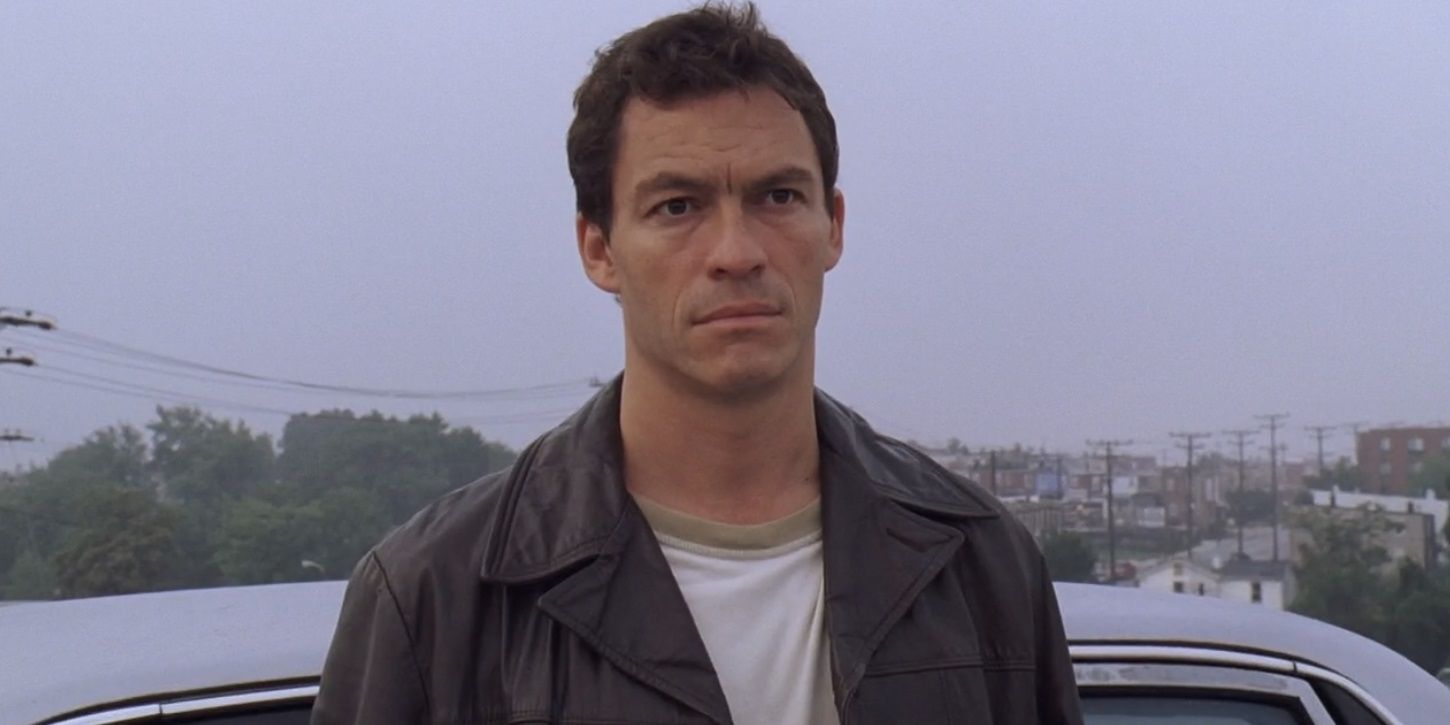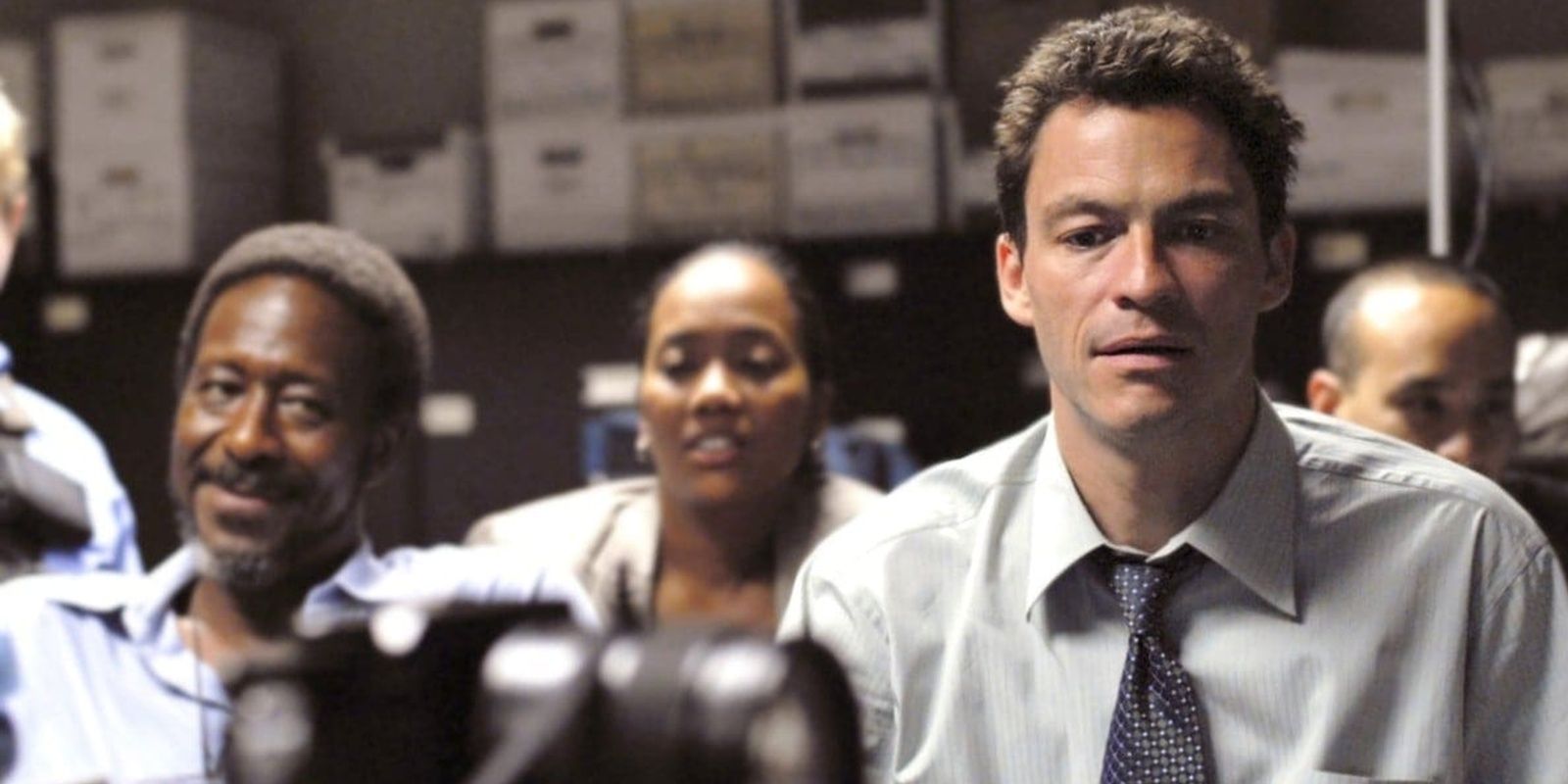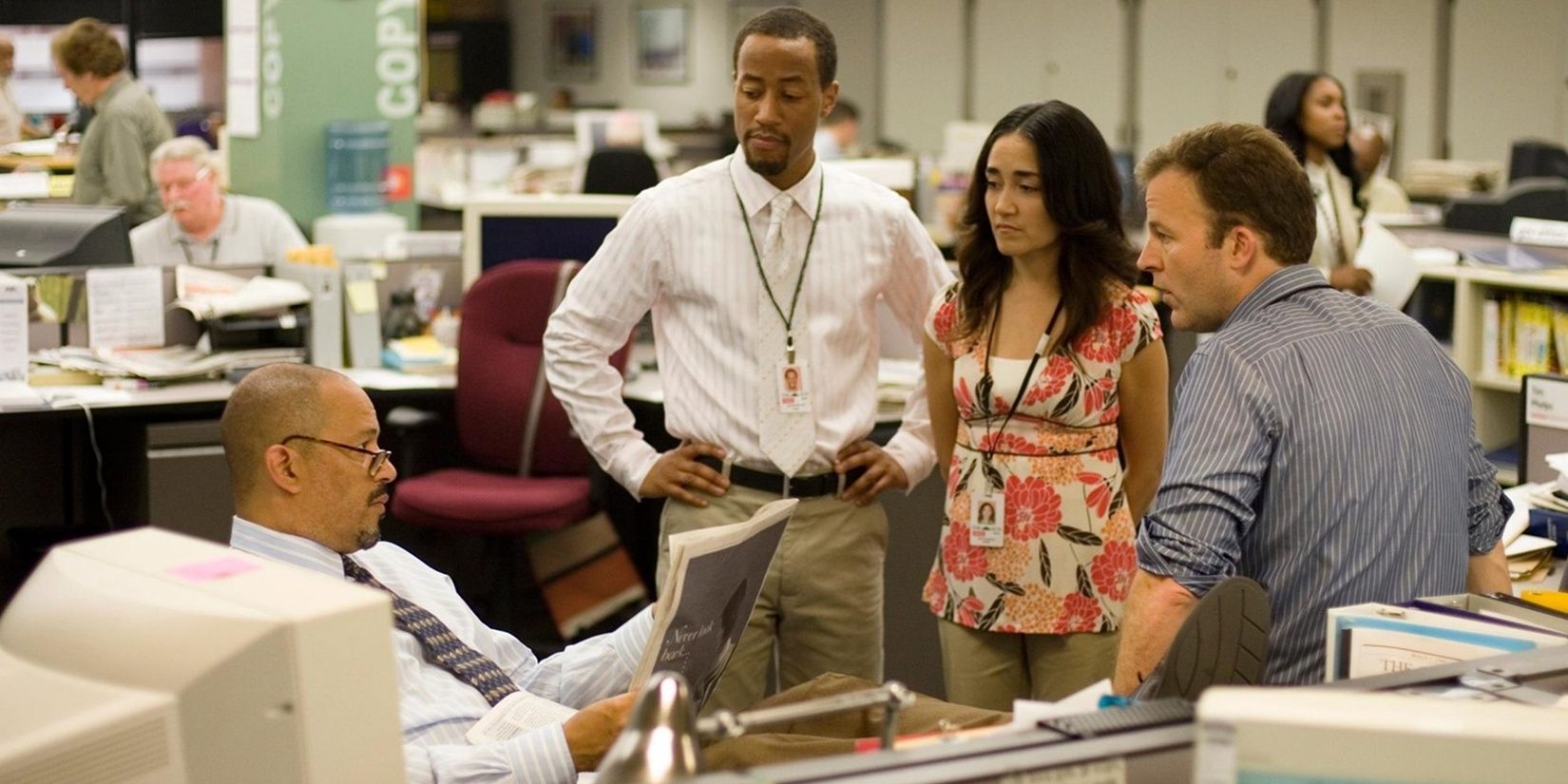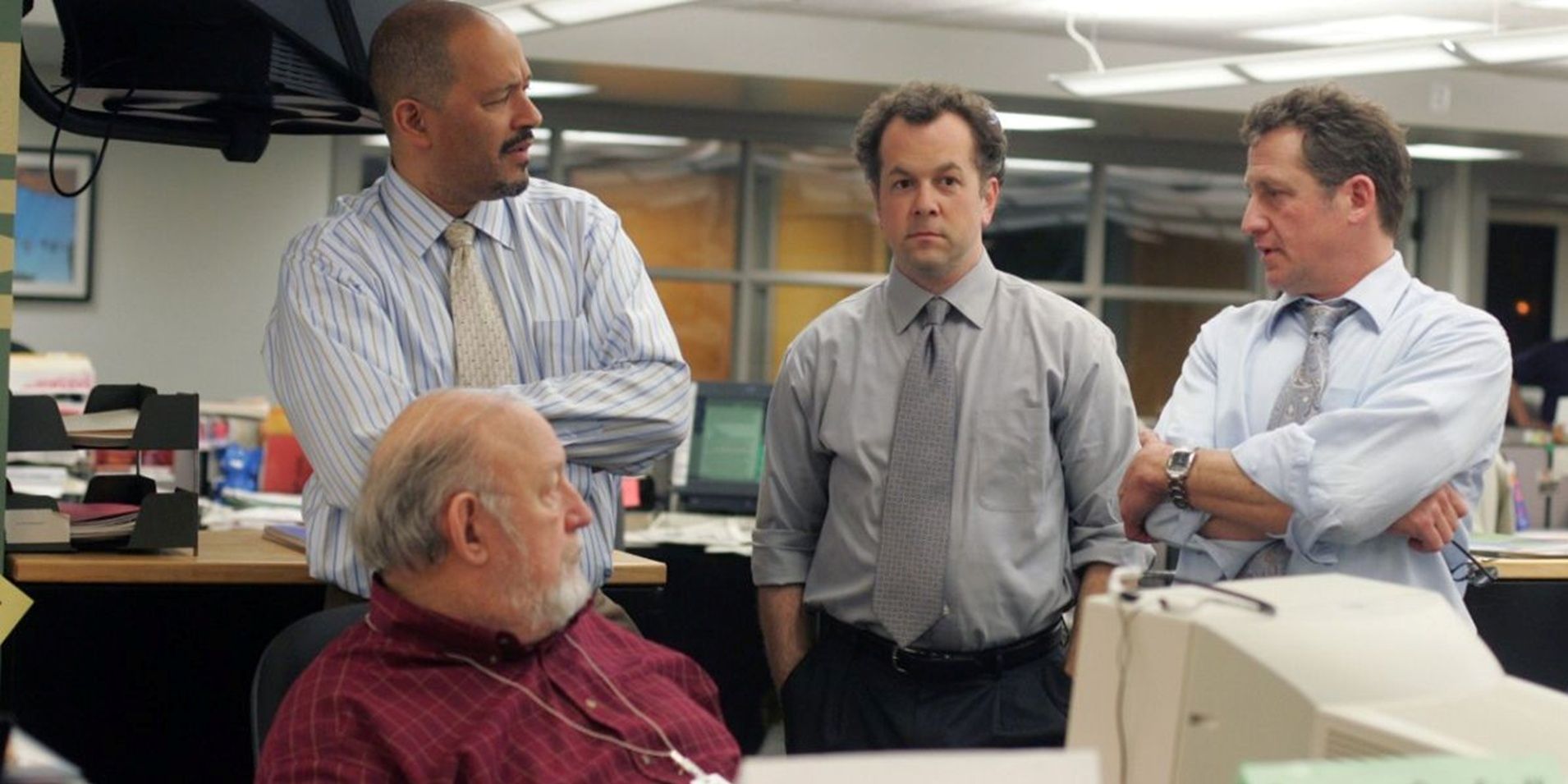
The fictional serial killer plotline in season 5 of “The Wire” drew criticism for being overly sensational and unrealistic given the show’s reputation for gritty realism. However, despite feeling like a departure from the series’ usual tone, there are still many aspects to appreciate about it. Throughout its five seasons, “The Wire” was highly acclaimed for its accurate portrayal of various communities and institutions, from the police force to the drug trade to local government. The show’s ability to depict its subjects with such raw realism often made it seem more like a documentary than a work of fiction.
However, in its final season, the series strayed from its initial gritty realism to an implausible narrative which seemed more fitting for standard police dramas that The Wire had previously distinguished itself from. In a bid to secure additional funding for the homicide division, Jimmy McNulty manipulated certain crime scenes to suggest a serial killer was murdering homeless individuals throughout Baltimore. Although this plotline marked a significant shift in tone, I remain fond of it. It introduced compelling character dilemmas and foreshadowed the emergence of “fake news.
The Wire’s Fake Serial Killer Storyline Created A Rift In The Homicide Squad
Some Cops Were More Onboard Than Others

A captivating aspect of the fictional murderer storyline in season 5 of “The Wire” is that it leads to a division within the police precinct’s homicide squad. Unlike the first four seasons, where the cops worked together as a cohesive unit to apprehend drug lords like Avon Barksdale, Stringer Bell, and Marlo Stanfield, the conflicts in season 5 were primarily internal among the officers themselves. Some of them endorsed the idea of fabricating a serial killer, while others were hesitant or skeptical about it.
Initially, Jimmy and Bunk were unwavering partners who stood by each other through thick and thin. However, when Jimmy proposed a scheme to manufacture a serial killer for increased funding in their homicide investigations, Bunk firmly objected. He was appalled at the thought of Jimmy fabricating evidence, altering crime scenes, submitting false police reports, and inciting terror across the city based on deceit. In an attempt to reason with Jimmy, Bunk even enlisted Lester, but was shocked to discover that Lester found the idea appealing.
Lester found nothing objectionable in Jimmy’s actions; instead, he believed that Jimmy was adopting an incorrect approach. He felt that Jimmy failed to make the fictional serial killer engaging enough for media coverage like notorious killers such as John Wayne Gacy and the Zodiac received. Consequently, Lester added a calling card to transform this fabricated killer into a villainous figure.
On the other hand, Kima often disregarded police regulations, but she was troubled by Jimmy and Lester’s actions. She sided with Bunk in this matter. It was intriguing to watch how their lie caused discord within the squad.
The Wire Season 5 Predicted The Rise Of Disinformation
The Wire’s Fake News Storyline Was Ahead Of Its Time

In “The Wire,” the fictional murderer story serves as a platform to delve into the world of media. The subplot unfolds within a dramatized Baltimore Sun newsroom, where reporters and editors grapple with the alleged homeless murders’ sensationalism. Tom McCarthy portrays Scott Templeton, a journalist known for bending the truth, initially exaggerating facts to make stories more captivating. However, he eventually starts fabricating entire reports. Clark Johnson plays Gus Haynes, an editor who prioritizes factuality and truth, becoming increasingly wary of Templeton’s work.
This plotline was remarkably forward-thinking for its time. When it first aired in 2008, it received criticism from many critics, including David Zurawik writing for the Baltimore Sun, who deemed it unrealistic. However, as we’ve progressed into the digital age, this portrayal of newspaper storylines doesn’t seem so implausible anymore. The widespread use of online journalism and social media has led to a diminishing trust in facts and an increase in misinformation, often referred to as “fake news.” In our current climate, it’s become common for news sources to distort the truth or fabricate outright lies.
The Wire’s Newspaper Storyline Criticized News Media For Prioritizing Entertainment Over Truth
The Wire Season 5 Is An Incisive Takedown Of Newstainment



Initially, when the news medium emerged, it primarily functioned as an unbiased platform for presenting facts and reporting events in a straightforward manner. However, in recent decades, with the introduction of television and the internet, the news has become increasingly sensationalistic. As the news industry expanded into a highly competitive market, complete with numerous players all seeking to capture their audience’s attention, many news sources have resorted to questionable tactics to gain an edge. Unfortunately, in today’s landscape, entertainment often takes precedence over truth, and attracting clicks has become more important than speaking the truth.
In its Season 5 narrative, The Wire criticized the widespread and destructive nature of misinformation long before it became such a significant issue in today’s world. The fictitious Baltimore Sun articles about a non-existent serial killer bear a striking resemblance to real-life disinformation campaigns surrounding presidential elections and the COVID-19 pandemic. This phenomenon, often referred to as “newstainment,” where current events are sensationalized like soap operas, is just as dangerous as a fictional serial killer in the real world.
Critiquing The Media Was The Perfect Theme For The Wire’s Final Season
It Took Aim At The Show Itself

In each installment of The Wire, a unique aspect of Baltimore was explored and demonstrated its role in perpetuating broader problems like corruption and social class disparities. The first season delved into the drug trade and the fruitlessness of the drug war, while the second scrutinized the docks and the decline of the working class. The third season took on local politics through a mayoral election, and the fourth examined the public school system. Although there were other potential subjects such as healthcare or immigration, the media became the fitting subject for the series’ final season.
Discussing where The Wire might have headed in a sixth season if HBO had continued it is intriguing, but instead, critiquing the media proved to be a fitting conclusion for the series. This criticism extended to The Wire itself and the manner in which the media portrays the institutional issues shown within the show. In essence, shows like The Wire contribute to the problem by transforming complex societal challenges that exacerbate America’s divisions into palatable entertainment. In many aspects, The Wire’s critique of the media served as a self-critique.
Read More
2025-05-20 12:09